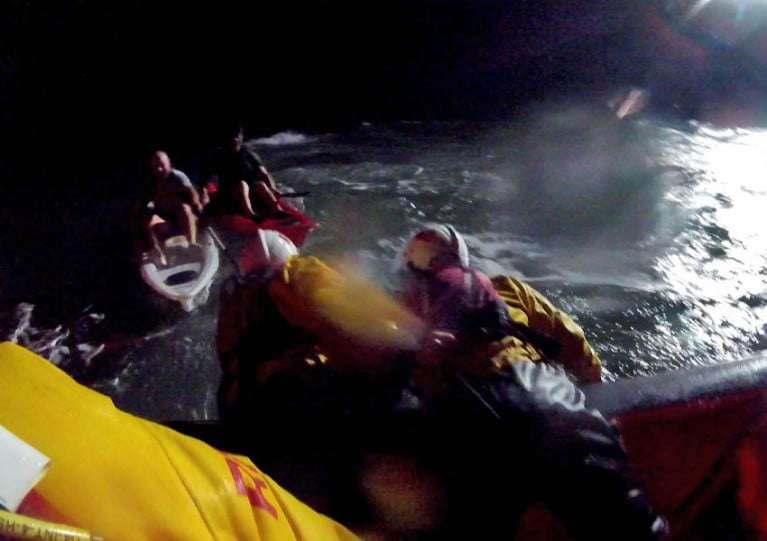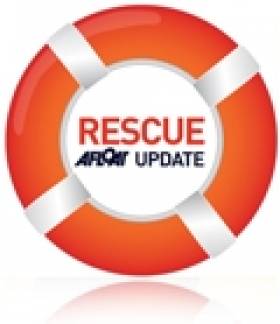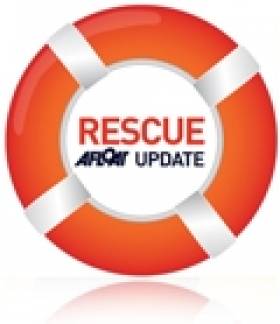Displaying items by tag: Minehead
Nightfall Rescue Difficulties Prompt Call For Kayakers To Carry Means Of Attracting Attention
Kayakers have been urged to always carry some means of attracting attention in an emergency, such as flares or a torch.
The call from the RNLI came after an incident off Somerset in the UK last month in which two kayakers were swept out into the Bristol Channel by strong currents in choppy waters.
Lifeboat volunteers from Minehead RNLI, joined by a rescue helicopter from HM Coastguard, had difficulty determining the kayakers’ location as darkness fell fast on the evening of Wednesday 2 September.
“Even when the helicopter found them and illuminated the area we couldn’t see them until we were about 30 yards away,” said lifeboat helm Phil Sanderson.
The two casualties, clad in T-shirts, were found cold but unharmed by their ordeal amid “nasty” conditions.
Minehead RNLI’s Chris Rundle added: “We would stress the importance of kayakers preparing for all eventualities by wearing proper clothing and buoyancy aids.
“And above all they should always carry some means of attracting attention, such as a flare pack or a good waterproof torch.
“It’s only a small investment but one which could make all the difference between life and death.”
Seven Kayakers Rescued After Bristol Channel Ordeal
#Rescue - Just days after a kayaker was rescued from the Bristol Channel comes footage of another rescue on the opposite side of that same body of water – this time of seven people kayaking off the Exmoor coast.
According to the Western Morning News, Minehead RNLI's Atlantic lifeboat launched on Sunday (3 May) to the kayakers who got into difficulty off the Foreland Point lighthouse but were able to reach the safety of the shore.
One of the kayakers had suffered an injured ankle, and all were transferred by lifeboats from Minehead and Ilfracombe to nearby Lynnmouth Harbour for treatment.
Lost Irish Fishermen Found Safe and Sound Off Minehead
FOUR Irish fishermen reported missing on Sunday have been found in good spirits off the coast of Minehead in Somerset.
This Is The West Country reports that the four men had left Helvick harbour in Co Waterford early on Sunday on a fishing trip but got lost shortly thereafter.
After contacting the coastguard with their concerns, the Helvick Head RNLI lifeboat was dispatched to Minehead, where the lost boat had been found by another fishing vessel, Faoilean Ban.
The lost fishermen subseqently followed the Faoilean Ban back to port at Helvick.































































